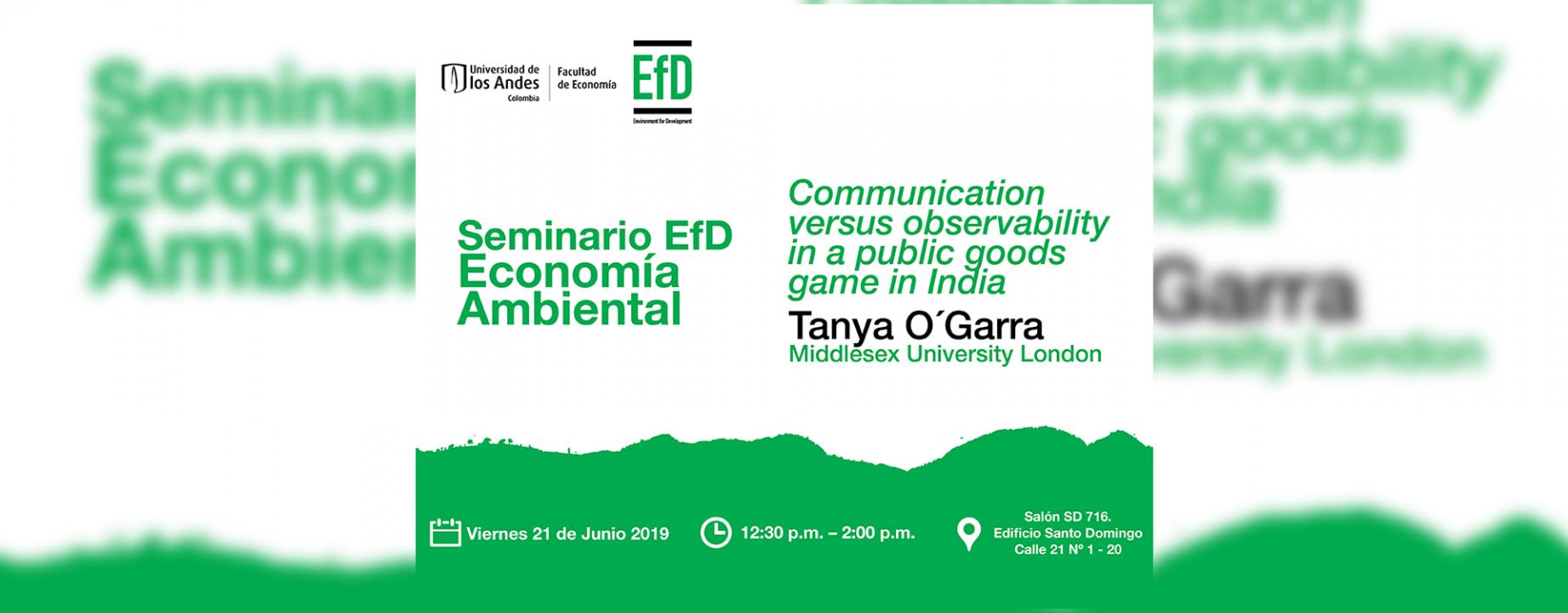Seminario EFD economía ambiental

Abstract:
This study is an empirical investigation of the potential for communication and observability interventions to increase cooperation around communal water treatment systems amongst villagers in rural India. Despite the dependence of many rural communities in India on communal water sources and treatment plants for safe drinking water, they often fail to collectively manage these resources, resulting in abandoned water points and treatment systems with consequent health and mortality impacts. Results of public goods games framed in terms of the management of communal water treatment systems suggest that these communities can cooperate to provide the public good. However, public disclosure of behaviour had the very significant effect of decreasing contributions to the public good. Analysis indicates that early rounds of play were critical in this regard: the observed behaviours of other individuals at the start of play strongly determined subsequent cooperation levels. Thus, frequently-observed free-riding behaviour in early rounds of the game led other players to follow suit. Only when participants were actively encouraged to negotiate agreements, did cooperation increase significantly - albeit intermittently. Overall, findings suggest that interventions that provide opportunities for communication and negotiation may be most effective at enhancing cooperation around communal water treatment plants, while the impacts of interventions that make behaviour observable are strongly dependent on behaviour in the early stages of cooperative interaction.

